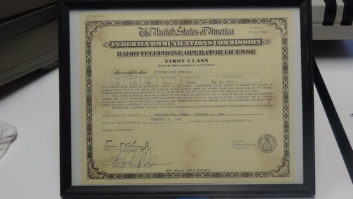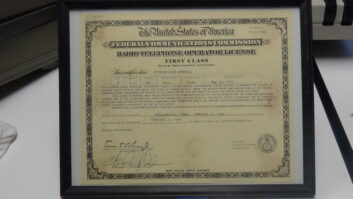The penalty for operating an unlicensed FM radio station is a steep one, as Andrew O. Turner of Miami Gardens, Fla., has found out the hard way.
The Enforcement Bureau at the Federal Communications Commission handed Turner a $15,000 fine for operating an unlicensed FM radio station from several residences in Broward County, Fla.
Last year, in response to a complaint, agents from the Enforcement Bureau’s Miami and Tampa offices identified and located the source of unlicensed transmissions operating on the frequency 95.9 MHz. After determining that Turner was operating the unlicensed station, he was warned by the commission in writing in March and August of that year.
The bureau followed up the warnings with a Notice of Apparent Liability for $15,000 for willful and repeated violation of the Communications Act. Turner filed a response to the NAL in December of last year and requested cancellation of the proposed forfeiture, saying that he “had no intentions of creating or causing danger intentional or unintentional,” nor did he “deliberately intend to undermine the commission’s authority.” His ministry is nonprofit, Turner told the FCC, and as such he has insufficient funds to pay the forfeiture. He added that his broadcasts benefit his community, and asked the commission to cancel the forfeiture in light of those community benefits.
But rules are rules. While the commission takes into account the nature and gravity of a violation when assess forfeitures, it found none of Turner’s responses persuasive. While Turner said he did not intend to cause danger or intend to violate the act, the rules state that any person who fails to comply with act is liable for a penalty, the bureau said in its forfeiture order.
The commission also shot down Turner’s assertion that his community service efforts should lead to reduction or cancellation of the fine.
“We have taken those benefits into account, and we conclude that they do not provide justification for any cancellation or reduction of the proposed forfeiture amount,” the bureau said in its ruling, adding that Turner could have performed his public service via low-power unlicensed transmissions, but he chose not to do so.
Turner also failed to submit any financial statements that would support his request that the fine be reduced or cancelled.
As a result, the commission found that the proposed $15,000 fine properly reflects the seriousness, duration and scope of Turner’s violations. Turner has 30 days to make payment.










